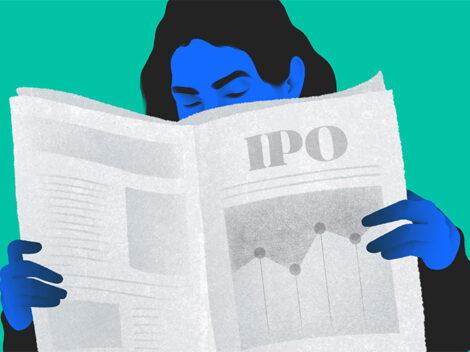The overwhelming majority of venture-backed companies that went public via special-purpose acquisition companies, or SPACs, this year are trading far below their former highs. The list of truly terrible performers, meanwhile, has expanded in recent months as selloffs accelerate.
Those were the broad findings from a Crunchbase News review of SPAC offerings this year. Several high-profile names, in sectors from insurance to autonomous driving to baby care, have performed particularly awfully. Many of the most recognizable names, including WeWork, Grab and BuzzFeed, are also down markedly.
So which are the worst performers? Using a combination of Crunchbase data and SPAC merger records, we set out to cherry-pick a few.
Turns out that was hard to do. That’s because the list of SPACs with down more than 30 percent since announcing a merger is rather long. We aggregated most of them in one list, which numbers just shy of 50 companies:
Of course, some are doing worse than others. To illustrate, we’re featuring a few names below, based on criteria including total share price decline, valuation drops and current value relative to prior private funding. Without further ado, here are our featured names:
No. 1: Metromile
The pay-per-mile auto insurance provider was a prodigious venture fundraiser, pulling in at least $290 million in known venture funding, per Crunchbase data. In late 2020, the San Francisco-headquartered company announced plans to go public through a merger with blank-check acquirer INSU Acquisition Corp. II, which infused more than $200 million more into the company.
But since completing the SPAC merger in February, Metromile has fared exceptionally poorly, with shares recently trading around $2.25—down from around $19 in mid-February. Last month, another upstart insurer, Lemonade, announced plans to acquire the company in a $500 million stock deal, ensuring prior investors in Metromile won’t have the opportunity for upside.
Search less. Close more.
Grow your revenue with all-in-one prospecting solutions powered by the leader in private-company data.
No. 2: View
Milpitas, California-based View has been around since 2007 and has raked in more than $1.6 billion in venture funding over the years for an appealing business model proposition: It makes “smart glass” for buildings that uses artificial intelligence to automatically adjust the amount of natural lighting in response to the sun.
In November 2020, the company announced it would take the next step: A public market debut through a merger with the SPAC CF Finance Acquisition Corp. II in a deal that added hundreds of millions more to its balance sheet.
Fast-forward to today, and View has recently been trading well below $4, its post-merger stock performance pretty much a straight downward trajectory. It doesn’t help that the company has been put on notice by Nasdaq for failing to file its 10-Q quarterly report for Q2 2021.
No. 3: Owlet
In February, Owlet, a venture-funded maker of tech-enabled baby care items, announced plans to merge with the SPAC Sandbridge Acquisition Corp. The deal set an initial enterprise value of around $1.07 billion for the Lehi, Utah-based company, which is best known for its vitals-monitoring “smart sock” for infants.
Recently, Owlet has been trading around $3 per share. Since completing its merger in June, shares have never hovered much above the $10 mark.
No. 4: Clover Health
Nashville-based Clover Health, a provider of Medicare Advantage plans for seniors, doesn’t sound like your typical venture-funded startup-turned-SPAC. Yet the 8-year-old company managed to raise more than $900 million in venture funding before agreeing to go public in late 2020 through a merger with blank-check acquirer led by “SPAC king” Chamath Palihapitiya.
Things have not gone so well since then. Shares of Clover were hovering a bit over $4 earlier this month, after peaking at over $22 this summer. Investors were reportedly spooked a few weeks ago by the company’s medical care ratio for its Medicare patients, which measures costs as a percentage of premiums earned, and has been running well above the target level.
No. 5: Xos
Xos, a producer of electric trucks and powertrains, seemed like a good fit to the SPAC boom. EVs are a hot space, and Xos’ pitch of decarbonizing transit was right on trend. So optimism was running high in February when the 6-year-old Los Angeles company announced plans to go public through a merger with blank-check acquirer NextGen Acquisition Corp.
But public investors have other ideas. Since completing its merger in August, Xos shares have been going steadily down, recently closing below $3. In its latest earnings report, the company said supply chain disruptions have slowed production ramp-up.
SPAC lessons learned
It’s been a record-setting year for private companies crossing the $1 billion valuation threshold into unicorn territory. So, it seems natural to presume that public markets would also be receptive to venture- and growth-stage companies in hot sectors with compelling business models, even if they are far from profitability.
But the great SPAC boom of 2021 seems to tell a different story. While many mergers with blank-check acquirers do OK initially, it’s quite common for these companies to see share selloffs in subsequent months.
Could they bounce back? Sure. But so far, things are largely not off to a great start.

Stay up to date with recent funding rounds, acquisitions, and more with the Crunchbase Daily.










![Illustration of 50+ woman on smartphone. [Dom Guzman]](https://news.crunchbase.com/wp-content/uploads/2021/01/Femtech_-300x168.jpg)

67.1K Followers